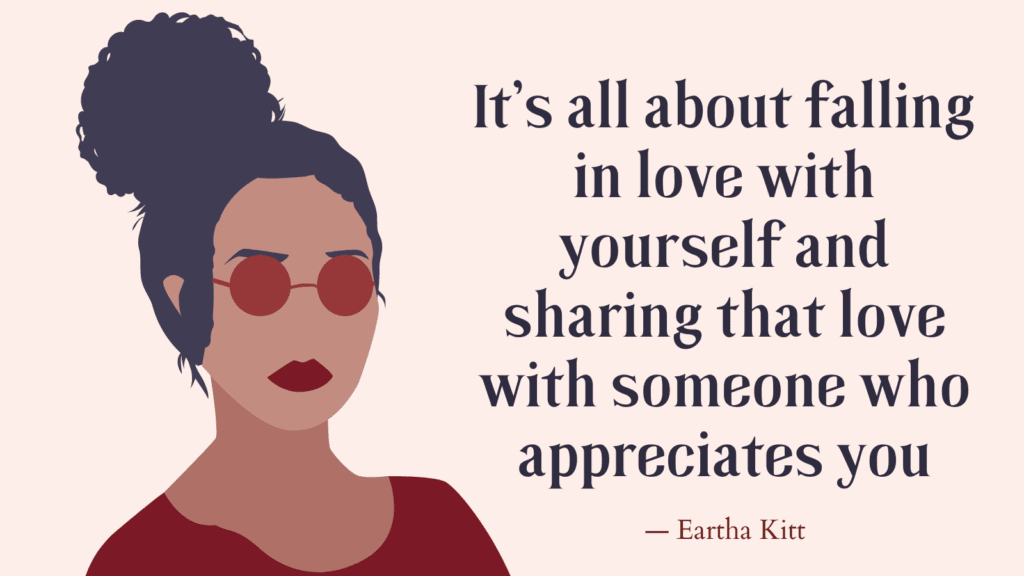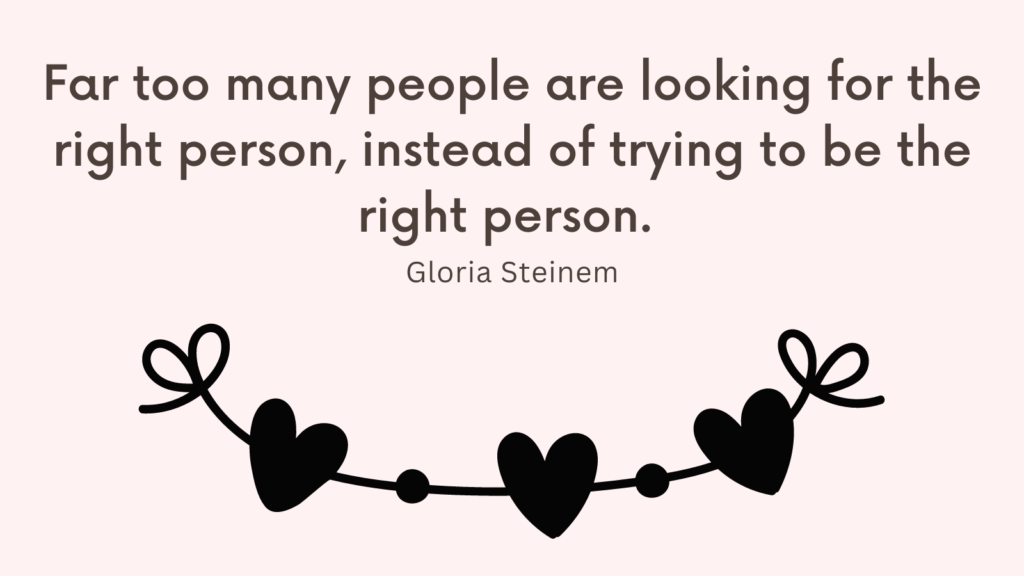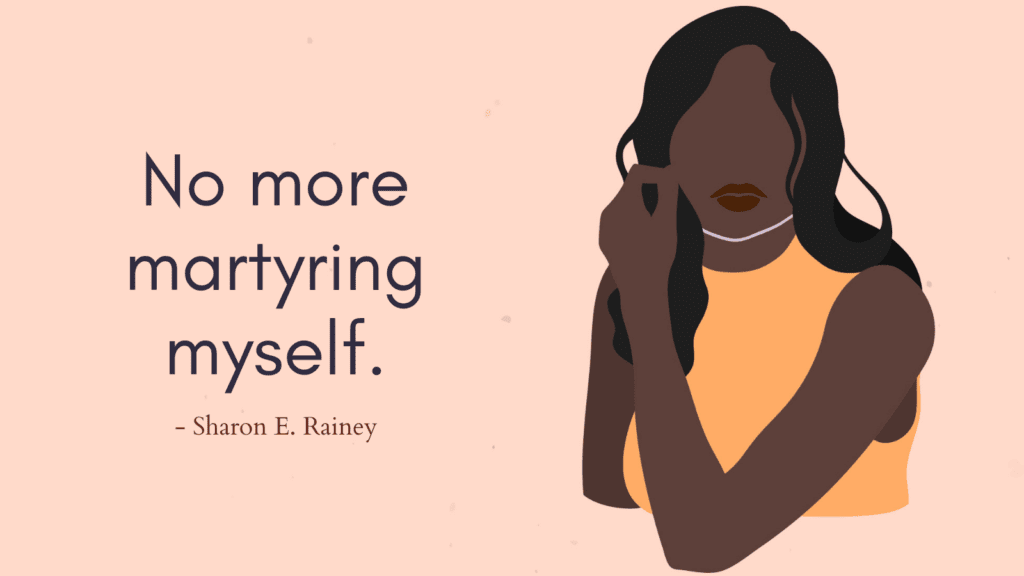Today, you’re going to discover the top 10 emotional boundaries in dating that you should set from the first date to help you find the “right person” sooner.
Dating can cause a lot of hurt and suffering. Many people experience heartbreak.
They repeatedly pick the “wrong type”. However, dating isn’t the problem.
We are the problem in the same way cars don’t kill people, but drunk drivers do.
This is why we need to establish healthy emotional boundaries in dating that will prevent heartbreaks and help us find the “right person” sooner.
Emotional Boundaries In Dating
Why Dating?
Even though it may cause hurt and suffering, dating can be a great way to learn and grow as a person.
Here are some benefits of dating:
1. Dating helps people learn about themselves, others, and relationships in a safe context.
Dating gives the opportunity to discover one’s own feelings, one’s need for relationship skills… More importantly, dating helps you know what you like in the opposite sex.
What you think you like might not be good for you in the long term, but that you won’t find out until you date someone.
2. Dating helps build relationship skills.
Dating helps people work on certain relationship skills they lack like communication, assertiveness, trust, honesty, listening, vulnerability… while dating alone won’t guarantee that you learn relationship skills, it’s a great way to become aware of your need for working on these skills.
Related: How to Be More Effective in Relationships (Effective Communication)
What Is a Boundary?
A boundary is where you end and the other person begins.
It is a limit that you set to define what you will and will not do or what you will or will not tolerate from others.
These boundaries come naturally and automatically; when we hit our limit, we feel physical and emotional pain.
However, many people learn to push past their natural limits and end up burned out or harboring resentment.
Why Set Emotional Boundaries in Dating?
Boundaries serve two main purposes.
First, they define us. They reflect what we are and what we are not, what we accept, and what we don’t. Dating is a much better experience when you’re clear about your values and preferences.
The second purpose of boundaries is protection. They keep unhealthy and destructive influences at bay.
Making your boundaries clear to the other person can be done through words (by saying no and making it clear that you won’t accept a certain behavior), distance (for example, if someone is being disrespectful towards, you simply leave), other people (by keeping a support system to help you keep a limit).
Related: How to Firmly Establish and Enforce Healthy Emotional Boundaries?
Top 10 Emotional Boundaries In Dating
#1. Don’t Tolerate Deception
Where there is deception, there is no relationship. Trust is the most important pillar in a relationship.
One of the most common deceptions in dating is when one person is sure that dating isn’t going where the other person thinks and hopes that it is, but would still continue dating.
The latter is being led to believe that things are moving forward when they’re not. He’s wastefully investing his time and energy and even money. It is your responsibility to let the other person know how you feel, as it is the other person’s responsibility.
“It is one thing to have loved and lost, it is another thing to have loved and been lied to.”
#2. Don’t Date Out Of Fear Of Being Alone
When you date out of fear of being alone, you risk putting up with disrespectful behavior, giving in to things that aren’t aligned with your values, settling for less than you desire, or even smothering the person you’re dating with excessive needs.
An important rule in dating and relationships is: To be happy with someone, you need to be happy alone first.
Being alone long enough is important for you to grow into a person who does not have to be in a relationship in order to be happy.
Related: How to Happily Spend Time Alone With Yourself and Actually Enjoy It?
#3. Don’t Repeat the Past
No one enters the dating world an expert. Everyone makes mistakes, and unless you learn from these mistakes, you’ll keep repeating them.
This is why it’s important to set a boundary with your past. Deal with your old dating patterns, and decipher what you need to do and what you need to avoid in dating.
Examples of negative patterns you might be repeating in your dating relationships could be a tendency to go too fast, adopting your date’s desires, allowing the relationship to rule you, and so on.
Once you’re able to take note of these patterns, you’ll be able to learn how you can stop repeating them.
Related: 3 Simple Ways To Make Peace With Your Past
#4. Define What You Can Live With and What You Can’t Live With
People have different tastes when it comes to dating. Some want intellectual people, others want athletics.
Dating can be an eye-opener when it comes to discovering what you like, but more importantly what you don’t like. In fact, oftentimes, people face significant relationship problems, not because their partner isn’t witty enough or fit enough, but rather because their partner is so controlling, doesn’t listen to them, is irresponsible, overspends all the time…
These traits have to do with character. This is why you need to know the person’s character and decide what you can live with and what you can’t live without.
At the same time, you might find yourself too rigid in your preferences, risking to miss out on good options. You might find yourself setting unrealistic expectations for your date, or wanting contradictory traits in one person.
Being able to distinguish between limiting and important preferences will help you become more flexible in dating. Your important preferences are determined by your values.
So if you value altruism, you might not get alone with someone who’s self-centered.
Related: 5 Basic Emotional Needs of Men and Women

#5. Don’t Fall in Love with Someone You Wouldn’t Be Friends With
A common problem people face is meeting someone with whom they either have fun and experience a deep connection or have chemistry and strong attraction but with whom you can’t connect and have very little in common.
If you find yourself unable to find attraction and friendship in one person, you need to consider two things.
First, do not think that you are going to change the person you are attracted to.
Second, if you see a pattern, consider that the problem might not be external to you, that you just haven’t yet found the right one.
You might be confusing longing or infatuation for “being in love.” You might have a certain kind of fantasy person or have projected some kind of idealized fantasies onto a person.
Related: 25 Signs Your Partner is a Psychopath – and How to Heal From Psychopathic Abuse

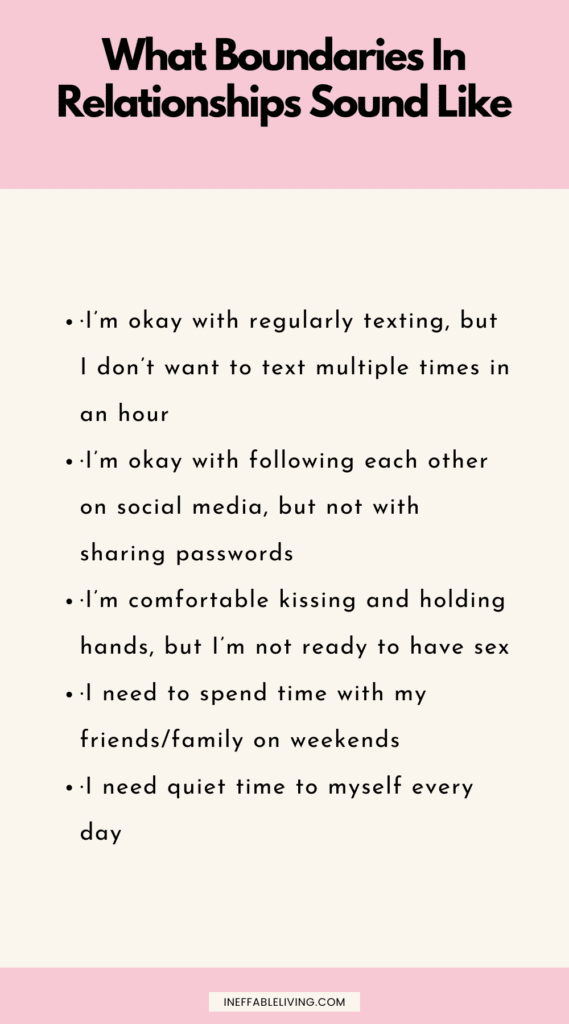
#6. Beware When Opposites Attract
We all want to be complete and to feel whole.
However, some people mistake this desire with the desire for dating and mating. Some believe that they’ll bring certain qualities to the relationship and their partner will do the same and the sum will be greater than the parts, they’ll both end up better off.
While our lives are always enriched by connecting with others who have qualities we don’t have, going for an opposite-type person in a relationship can make you dependent.
For example, someone who is introverted and finds it difficult to approach people and make friends might feel attracted to someone who’s extroverted and who’s always surrounded by friends.
He might find himself dependent on his partner to have friends. Such a relationship can become an excuse not to work at developing ourselves and growing as individuals. “Attraction based on values is much more mature than attraction based on what you don’t have inside.”
Related: The 3 Different Relationship Attachment Styles
#7. Be Clear on How Long You Should Wait Before Committing
Many people meet, date, and mate within a few months.
They believe that they have found the right person and think they’re ready for commitment. They invest too much time and effort too fast, only to find out that they’re not fir for each other after all.
The fact is, relationships don’t tolerate shortcuts. Relationships need to undergo experiences in order to grow in a healthy way, and there are no shortcuts to experiences.
You might know facts about the person you’re dating (their job, hobbies, friends…) but you can only know them as a person to the extent that you have experience with each other.
So how long should couples wait before starting to date exclusively and think about commitment?
Some experts suggest at least a year. That way, you get to experience the seasons of life that people go through (holidays, vacations, etc) and see how the relationship deals with the flow of life of both people.
Related: Dating With Intention: What Does It Mean & How To Do It?
#8. Don’t Isolate Yourself From Your Family and Close Friends
At the beginning of a relationship, many people are unable to see reality.
They tend to idealize the other person and project their fantasies and wishes on him. If these fantasies are based on reality, the stage of idealization will move to something real and lasting.
If, however, the fantasies are strong and the person is desperately wishing for them to be true, then the relationship can become unhealthy.
This is why you need a support system. Your close friends and family members can see things about the person you’re dating that you’re not able to see, or unwilling to see.
Include the person you are dating in your circle of friends and stay open to their feedback, even if it is difficult to hear. Oftentimes, they’re right.
Related: Relationship Red Flags Quiz
#9. Don’t Hope You’ll Change The person In The Future
When the person you’re dating is treating you in a way that you cannot live with, you might find yourself, instead of walking away, hoping that he’ll change.
Hope that will not disappoint should be based in reality. You need to keep in mind that the best way to predict the future, without some intervening variable, is to observe the past.
Nonetheless, the normal path for change in a relationship usually follows these steps:
– You tell the person what the behavior is, and how you feel when he does it.
– He empathizes with how you felt and expresses sorrow.
– He apologizes and promises not to do that behavior anymore.
– He either changes and you don’t see that behavior again, or he fails, self-corrects, apologizes, and continues to make effort to change.
Overall, “there is a sustained path of growth where you are not the driving force of motivation.
In other words, the person is seeking change out of wanting to grow personally and out of care for the relationship. You are not having to “push” her any longer.”
If your process of change doesn’t come close to the one described above, then you might want to ask yourself whether or not your hope is going to disappoint you.
#10. Don’t Tolerate Disrespect
Disrespect happens when someone values their own desires above their date’s.
Disrespect is more self-centered than malicious. The person might not be actively trying to hurt their date, but the latter’s feelings and needs get run over and ignored because of how intent the other person is on having their own way.
When someone is feeling hurt by their date’s sarcastic remark, or broken promise, or any behavior or treatment, the couple needs to talk about what triggered the hurt and solve the problem.
Respecting someone doesn’t mean that you need to agree with them or comply with what they want. It simply means that the other person’s feelings matter, and that you need to listen to, understand and try to help the situation.
A relationship should increase respect between the couple.
So if you notice that your date isn’t respecting you anymore and that their disrespect is increasing, then he probably never had true respect for your needs and feelings in the first place.
The right way to deal with disrespect is by doing the following:
– Don’t wait to deal with it. When disrespect is caused by selfishness, control, or lack of understanding, it won’t get resolved over time.
– Get to know your date in the context of other relationships. You might find yourself wondering whether or not you’re overreacting to your date’s unpunctuality, for example.
Finding out from his friends or family if he is like that with them too, will let you know if he’s disrespecting you, or if he simply doesn’t have a concept of time.
– Say No. Make it clear to your date that you won’t tolerate disrespect. If he’s a respectful person, he’ll listen, apologize, and commit to change.
FREE Printable Relationship Worksheets (PDF)
Why Set Emotional Boundaries In Dating?
1. Self-protection
Emotional boundaries help protect your mental and emotional well-being.
They allow you to establish what is acceptable and unacceptable behavior from your partner.
By setting clear boundaries, you can prevent yourself from being mistreated, manipulated, or emotionally drained in the relationship.
2. Autonomy and identity
Maintaining emotional boundaries allows you to preserve your individuality and sense of self within the relationship.
It’s important to have personal space, interests, and hobbies that are separate from your partner.
This helps foster a healthy balance within the relationship, preventing co-dependency and promoting personal growth.
3. Communication and understanding
Establishing emotional boundaries encourages open and honest communication with your partner.
It allows you to express your needs, feelings, and concerns without fear of judgment or retribution.
By clearly defining your emotional boundaries, you can enhance understanding and build a stronger foundation of trust in the relationship.
Related: What Do Boundaries Sound Like? + 35 Boundaries Examples
4. Mutual respect
Emotional boundaries promote respect between partners.
They help set expectations around how you should be treated and how you treat your partner.
By valuing and respecting each other’s emotional limits, you create a healthier dynamic where both partners feel heard, understood, and valued.
5. Reducing conflict and misunderstandings
When emotional boundaries are clearly communicated and respected, it reduces misunderstandings and conflicts in the relationship.
Both partners understand the limits and expectations, making it easier to navigate challenges and resolve disagreements effectively.
Related: Top 10 Books About Setting Boundaries
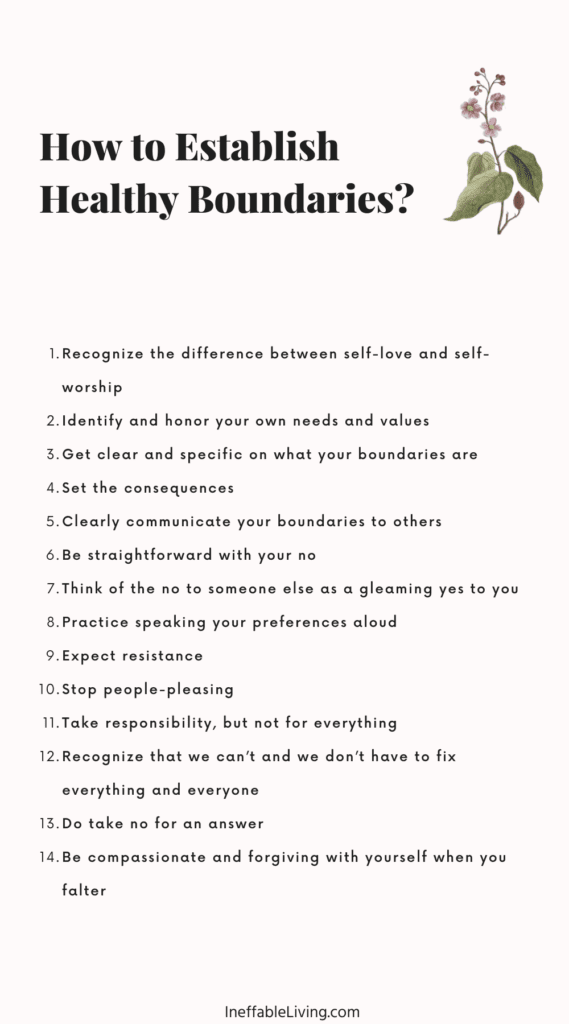
Conclusion
In relationships, you get what you tolerate.
When you set proper boundaries, you define what you will accept and what you won’t accept.
Setting emotional boundaries is not about creating walls or pushing your partner away.
It’s about creating a healthy balance that respects both individuality and the collective relationship.
This can save you so much hurt and help you meet the right one sooner.

Resources
- Portions of this article were adapted from the book Boundaries In Dating, © 1992 by Henry Cloud and John Townsend. All rights reserved.
- Americans’ Views on Dating and Relationships | Pew Research Center
- The science of online dating – PMC (nih.gov)
- Modern Love: Scientific Insights from 21st Century Dating – Association for Psychological Science – APS
